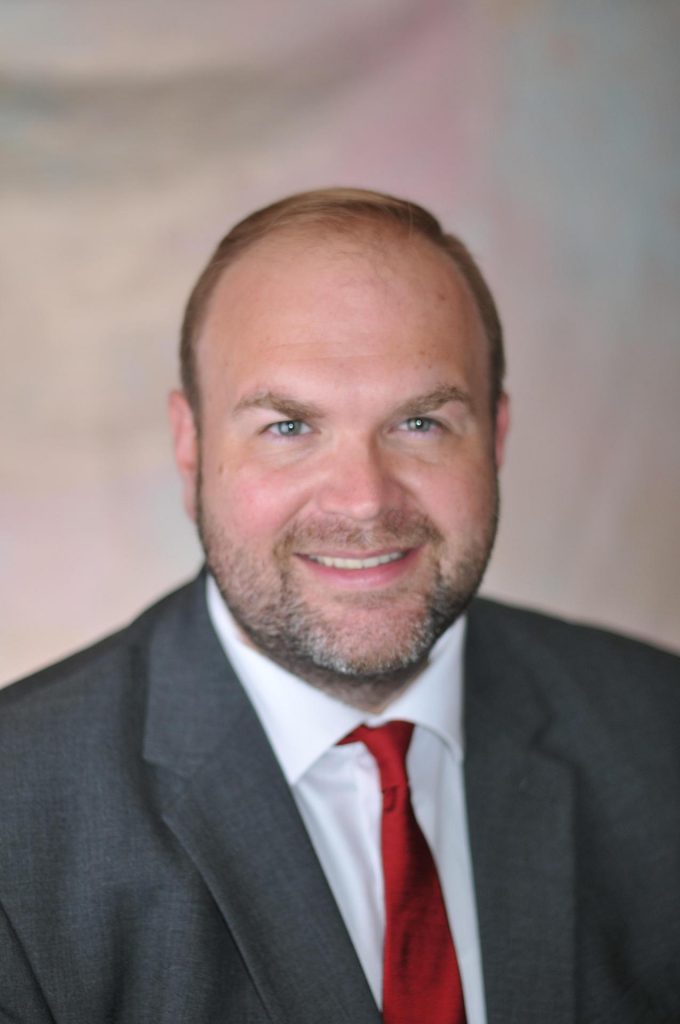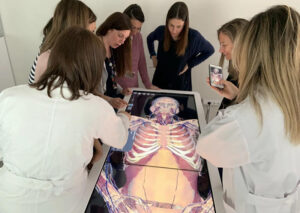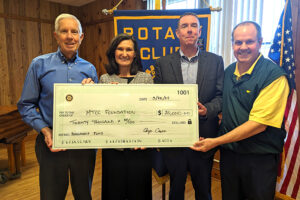Over the next three years, McDowell Technical Community College leaders will be participating with 9 other community colleges in North Carolina in the Rural College Leaders Program (RCLP), a program of the Belk Center for Community College Leadership and Research, in partnership with Achieving the Dream, with funding from Ascendium Education Group, an educational non-profit organization.
The Rural College Leaders Program is a capacity-building program designed to close equity gaps and improve student outcomes among the community colleges chosen to participate in the program. Equity gaps are disparities in outcomes and success among differing student populations based on gender, race, socioeconomic status and other demographic-related traits. As the name implies, all of the selected colleges serve rural communities in North Carolina.

“We are thrilled to join this cohort to learn alongside our peer institutions to work on solutions that will help us collectively close equity gaps across North Carolina for the students in our rural communities for those who need us the most,” said Dr. Brian S. Merritt, MTCC President.
“The Rural College Leaders Program was designed with both the unique challenges and unique opportunities of our rural-serving institutions in mind,” said Audrey Jaeger, Ph.D., W. Dallas Herring Professor with NC State College of Education and Executive Director of the Belk Center. “Through this program, we are eager to improve equitable student success that leads to greater social and economic mobility in our state’s regions. To that end, we aim to not only advance the work of our participating institutions – but to share the lessons learned with other rural-serving community colleges in North Carolina as well.”
Over the next three years, Dr. Merritt, members of the MTCC leadership team and members of the board of trustees will participate in a series of six professional learning events that focus on driving transformational change through data-driven, equity-minded decision-making and collaboration. Additionally, they will partner with coaches from Achieving the Dream to address needs specific to McDowell Tech. Together, they will work on strategies to remove systemic barriers that prevent individuals and groups of individuals from achieving educational and career goals, improve pathways for learners, and increase completion rates for low-income students and students of color.
The first scheduled event on the Rural College Leaders Program calendar will be a kick-off event which will take place on Monday, Feb. 28, 2022 at the Belk Center in Raleigh. Focused on defining equity and identifying gaps in equity, the event will lay a foundation for the program’s goal of strengthening institutional capacity and developing learner-centered change agents. Presidents from each of the participating colleges and two coaches from Achieving the Dream will be in attendance. Greg Hodges, Ph.D., president of Patrick Henry Community College in Martinsville, Va., will serve as guest speaker, sharing with the RCLP cohort about his experience promoting equitable outcomes in a rural region.
In subsequent events, community college leaders will collaborate to define measurable goals, leverage evidence-based practices, identify opportunities and develop action plans addressing strategic priorities. For further support, the program cohort will gather between learning events in three regional collaborative groups.
Besides McDowell Tech, the RCLP cohort includes Carteret Community College, Catawba Valley Community College, College of the Albemarle, Davidson-Davie Community College, Isothermal Community College, Roanoke-Chowan Community College, Stanly Community College, Vance-Granville Community College and Western Piedmont Community College. The 10 colleges were notified of their acceptance to the program on Dec. 20, 2021 following a formal application and interview process.
“Our Vision at MTCC is clear. We will ‘Learn and Grow’ and always seeks to better serve individuals, our community, and our institution,” said Merritt, the MTCC President. “Peer-to-peer learning, combined with statewide and regional approaches, will make us all stronger as we work towards North Carolina’s aggressive attainment goal of 2 million high-quality degrees or credentials by 2030.”
####
About the Belk Center
The Belk Center for Community College Leadership and Research, at North Carolina State University, develops and sustains exceptional community college leaders who are committed to advancing equitable college access and student success, the social and economic mobility of their colleges’ students, and the economic competitiveness of their regions. The Center provides professional development and research related to current and emerging student success opportunities and challenges facing community college leaders and policymakers in North Carolina and the nation. For more information, please visit www.belk-center.ced.ncsu.edu.
About Achieving the Dream
Achieving the Dream (ATD) leads a growing network of more than 300 community colleges committed to helping their students, particularly low-income students and students of color, achieve their goals for academic success, personal growth, and economic opportunity. ATD is making progress in closing equity gaps and accelerating student success through a unique change process that builds each college’s institutional capacities in seven essential areas. ATD, along with nearly 75 experienced coaches and advisors, works closely with Network colleges in 45 states and the District of Columbia to reach more than 4 million community college students.
About Ascendium Education Group
Ascendium Education Group is a 501(c)(3) nonprofit organization committed to helping people reach the education and career goals that matter to them. Ascendium invests in initiatives designed to increase the number of students from low-income backgrounds who complete postsecondary degrees, certificates and workforce training programs, with an emphasis on first-generation students, incarcerated adults, rural community members, students of color and veterans. Ascendium’s work identifies, validates and expands best practices to promote large-scale change at the institutional, system and state levels, with the intention of elevating opportunity for all. For more information, visit https://www.ascendiumphilanthropy.org.



